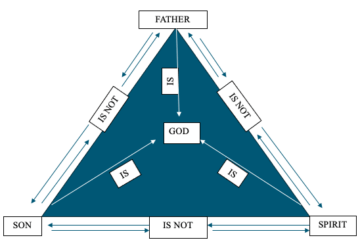Introduction
In today’s modern political climate, hardly a week goes by before someone is making a comment about how conservative they are in the light of their “Christian faith.” However, when comparing their faith to the faith of their opponents, it usually ends up with “politically correct outrage” because one challenged the other’s use of the term Christian to describe themselves. The sad part is that those outraged the most over being challenged about whether or not they are a Christian have little or no idea what the Bible says about what makes someone a Christian.
The founding fathers knew
According to the book Silenced in the Schoolhouse: How Biblical illiteracy in our schools is destroying America, it was very clear to America’s founding fathers what made someone a Christian. Even Thomas Jefferson, who many claim was just a deist, not a Christian, writing in a letter to Thomas Johnson about Christianity made it clear about his faith and what made him a Christian. Johnson was the former Secretary of Congress and a Greek scholar who had created an English translation of the Greek Septuagint and had given a copy to Jefferson. The letter, dated January 9th, 1816 says:
“My Dear and Ancient Friend,–An acquaintance of fifty-two years, for I think ours dates from 1764, calls for an interchange of notice now and then, that we remain in existence, the monuments of another age, and examples of a friendship unaffected by the jarring elements by which we have been surrounded, of revolutions of government, of party and of opinion. I am reminded of this duty by the receipt, through our friend Dr. Patterson, of your synopsis of the four Evangelists. I had procured it as soon as I saw it advertised and had become familiar with its use; but this copy is the more valued as it comes from your hand. This work bears the stamp of that accuracy which marks everything from you, and will be useful to those who, not taking things on trust, recur for themselves to the fountain of pure morals. I, too, have made a wee-little book from the same materials, which I call the Philosophy of Jesus; it is a paradigm of his doctrines, made by cutting the texts out of the book, and arranging them on the pages of a blank book, in a certain order of time or subject. A more beautiful or precious morsel of ethics I have never seen; it is a document in proof that I am a real Christian, that is to say, a disciple of the doctrines of Jesus, very different from the Platonists, who call me infidel and themselves Christians and preachers of the Gospel, while they draw all their characteristic dogmas from what its author never said nor saw. They have compounded from the heathen mysteries a system beyond the comprehension of man, of which the great reformer of the vicious ethics and deism of the Jews, were he to return on earth, would not recognize one feature.“[i] (emphasis added)
Of particular note is Jefferson’s mention that he is a “real Christian…a disciple of the doctrines of Jesus.” In the original handwritten letter, Jefferson underlined the words “real Christian” for emphasis. [ii]
What Jefferson was communicating was that many people who called themselves Christians along with many preachers defined Christianity as the man-made traditions and dogmas that Jesus Himself would not recognize as Christianity at all. Jefferson, as well as other founders, wrote extensive critiques of those who perverted the teachings of the Bible in the name of Christianity. Jefferson believed that the Christianity of the Bible; the purest teachings of Jesus, were true Christianity.
Another interesting point is that Jefferson described how he had created a book called the Philosophy of Jesus by cutting out selected texts and arranging them into a blank book. Skeptics of Jefferson’s Christianity claim that Jefferson created a “Jefferson Bible” containing only the verses of which he agreed. When reading his letter, it can be seen that this was not the case at all. He wanted to take the teachings of Jesus and create a small book, which he called in the letter “A more beautiful or precious morsel of ethics I have never seen.”
Jefferson would later take his Philosophy of Jesus and provide it as “a primer for the Indians on the teachings of Christ.” He did this by taking Jesus’ own words and publishing them to introduce the Indians to Christian morality. In Jefferson’s own words, he said that his intent was not for it to be a Bible. As President, he negotiated treaties with numerous Indian tribes and believed that Christian morality was needed so much that he provided Christian missionaries to them at government expense! [iii] Imagine a President today trying to do that!
They say Jefferson was not a Christian
Not only was Jefferson’s label of being a Christian challenged, but George Washington’s faith as a Christian was as well. On February 23, 1833, George Washington’s adopted daughter, Nelly Custis-Lewis, wrote a letter concerning the faith of her father to Jared Sparks who was compiling Washington’s writings. In the letter, she described her famous father as being an Episcopalian who was very instrumental in the establishment of both the Pohick Church and the Christ Church in Alexandria, Virginia. She also told of how they faithfully traveled 2-3 hours by horse or carriage to attend church in Alexandria and how Washington never missed church when he was in New York and Philadelphia unless he was ill.
Nelly went on to describe how he would go into his library morning and evenings alone for private devotions. She wrote that she “thought it the greatest heresy to doubt his firm belief in Christianity. His life, his writings, prove that he was a Christian. He was not one of those who act or pray, ‘that they may be seen of men’ (Matthew 6:5). He communed with his God in secret [Matthew 6:6].” [iv] She concludes by suggesting that anyone who questions Washington’s Christianity may as well question his patriotism amongst other things:
“Is it necessary that any one should certify, General Washington avowed himself to me a believer in Christianity? As well may we question his patriotism, his heroic, disinterested devotion to his country. His mottos were, ‘Deeds, not Words’; and, ‘For God and my Country’.”[v]
Jared Sparks, would later write:
“To say that he [George Washington] was not a Christian would be to impeach his sincerity and honesty. Of all men in the world, Washington was certainly the last whom any one would charge with dissimulation or indirectness [hypocrisies and evasiveness]; and if he was so scrupulous in avoiding even a shadow of these faults in every known act of his life, [regardless of] however unimportant, is it likely, is it credible, that in a matter of the highest and most serious importance [his religious faith, that] he should practice through a long series of years a deliberate deception upon his friends and the public? It is neither credible nor possible.” [vi]
How should we define “Christian”
These are but just two of the founding fathers described in Silenced in the Schoolhouse that considered themselves or were considered by others to be Christians. The question is, were they right? To find the answer to that question, we need to look to the Bible for the definition of what makes someone a Christian, because many people call themselves a Christian based on an assumption of what the term means.
The word Christian or Christians is mentioned only three times in the Bible, but it is very clear about what the term means. It is found in Acts 11:26; Acts 26:28; and 1 Peter 4:16. A check of Webster’s 1828 dictionary lists a Christian as follows:
CHRISTIAN, n
- A believer in the religion of Christ
- A professor of his belief in the religion of Christ
- A real disciple of Christ; one who believes in the truth of the Christian religion, and studies to follow the example, and obey the precepts, of Christ; a believer in Christ who is characterized by real piety
- In a general sense, the word Christian includes all who are born in a Christian country or of Christian parents.
Now it is certainly no surprise that many people identify themselves as Christians based on definition number four. Some may even claim the title based on the definitions listed in numbers one and two. However, definition number three is the one that is closest to what the Bible teaches is a Christian.
Starting with Acts 11:26, it is clear that the term was first mentioned to describe the disciples (believers), which were students that Paul and Barnabas trained during the course of a year that they were at the church in Antioch. This is very important to consider because the Bible provides a lot of information about the Christians at Antioch. In doing so, the reader gets a clear description of people who were called Christians.
Focusing in then on the disciples at Antioch, we see that they were first mentioned in Acts 6:1-8. The number of disciples was growing at the new church in Antioch. This put a strain on the ministry because of the number of widows that needed care. Unlike many churches today, local churches once taught that widows that were past the age of remarriage and had no family to care for them were cared for by the church (1 Timothy 5:1-17).
Deacons
Since the number of widows that needed care was growing, the disciples arranged to have the congregation pick out men to serve as deacons. The term deacon means “servant,” so these men were to care for the widows so that the Apostles did not have to leave the ministry of the Word (Acts 6:1-4) to care for them. They picked out seven men based on the guidelines that the Apostles gave them for choosing the men. The guidelines were for selection as follows:
- Men of honest report
- Full of the Holy Ghost
- Full of wisdom
Looking at these qualifications deeper, we can get better understanding of what describes a Christian. Likewise, when you look at these qualifications along with other factors that we will describe later, the picture will be quite clear as to who meets the definition of a Christian and who does not.
Men of Honest Report
The first factor mentioned was that they would be men of honest report. By using the term honest report, they were being told to find someone with a reputation of honesty. This means that the person chosen would be known as someone who does not lie, does not try to deceive or cheat people, and their honesty would be well known among the people. Simply stated, they must have a good reputation.
Full of the Holy Ghost
The next factor mentioned was that they would be “full of the Holy Ghost.” By using this term, they were specifying that the person must be a born again believer in Jesus Christ. This is a critical factor because a person does not have the Holy Spirit in them unless they have trusted in Jesus Christ as their savior. We are told in Ephesians 1:13-14 that when we believe the Gospel of our salvation, we are given the Holy Ghost as a guarantee (earnest) on our inheritance:
(Ephesians 1:13-14 KJV) “In whom ye also trusted, after that ye heard the word of truth, the gospel of your salvation: in whom also after that ye believed, ye were sealed with that holy Spirit of promise, Which is the earnest of our inheritance until the redemption of the purchased possession, unto the praise of his glory.”
The other thing that has to be noted about this verse is that not only were we given the Holy Spirit of promise, we were also “sealed” with that same Spirit. This is confirmed in Ephesians 4:30 as follows:
(Ephesians 4:30 KJV) “And grieve not the holy Spirit of God, whereby ye are sealed unto the day of redemption.”
As for the term born again believer, being born again is what happens the moment we are given God’s Holy Spirit as a believer. The Apostle Peter clarifies this in 1 Peter 1:18-23 as follows:
(1 Peter 1:18-23 KJV) “Forasmuch as ye know that ye were not redeemed with corruptible things, as silver and gold, from your vain conversation received by tradition from your fathers; (19) But with the precious blood of Christ, as of a lamb without blemish and without spot: (20) Who verily was foreordained before the foundation of the world, but was manifest in these last times for you, (21) Who by him do believe in God, that raised him up from the dead, and gave him glory; that your faith and hope might be in God. (22) Seeing ye have purified your souls in obeying the truth through the Spirit unto unfeigned love of the brethren, see that ye love one another with a pure heart fervently: (23) Being born again, not of corruptible seed, but of incorruptible, by the word of God, which liveth and abideth for ever.” (Emphasis added)
Finally, we should note is that being filled with the Spirit refers to a baptism of the Spirit as we read in 1 Peter 1:18-23 previously. But, evidence of being filled with the Spirit is mentioned in Ephesians 5:18-21 as follows:
(Ephesians 5:18-21 KJV) “And be not drunk with wine, wherein is excess; but be filled with the Spirit; (19) Speaking to yourselves in psalms and hymns and spiritual songs, singing and making melody in your heart to the Lord; (20) Giving thanks always for all things unto God and the Father in the name of our Lord Jesus Christ; (21) Submitting yourselves one to another in the fear of God.”
Being filled with the Spirit does not mean we are speaking in gibberish, rolling around in the floor laughing, casting out demons, or performing so called miracles. Even Jesus points out that there will be people who do this that are not Christians (Matthew 7:22-23). Instead, a Christian will quote Scripture as part of their normal conversation, sing songs and hymns, give thanks for everything (good and bad), and submit themselves to others for examination.
Full of Wisdom
Being full of wisdom does not mean they are highly educated, hold high positions, or are experts in philosophy. Proverbs 1:5-7 explains Godly wisdom as follows:
(Proverbs 1:5-7 KJV) “A wise man will hear, and will increase learning; and a man of understanding shall attain unto wise counsels: (6) To understand a proverb, and the interpretation; the words of the wise, and their dark sayings. (7) The fear of the LORD is the beginning of knowledge: but fools despise wisdom and instruction.” (Emphasis added)
First, the wise person will attain unto wise counsels. Wise counsels means they will seek to understand the Word of God as their source of wisdom. By seeking the Word of God as their source of wisdom, they are seeking Jesus. Paul explains this in 1 Corinthians 1:17-30 as follows:
(1 Corinthians 1:17-30 KJV) “For Christ sent me not to baptize, but to preach the gospel: not with wisdom of words, lest the cross of Christ should be made of none effect. (18) For the preaching of the cross is to them that perish foolishness; but unto us which are saved it is the power of God. (19) For it is written, I will destroy the wisdom of the wise, and will bring to nothing the understanding of the prudent. (20) Where is the wise? where is the scribe? where is the disputer of this world? hath not God made foolish the wisdom of this world? (21) For after that in the wisdom of God the world by wisdom knew not God, it pleased God by the foolishness of preaching to save them that believe. (22) For the Jews require a sign, and the Greeks seek after wisdom: (23) But we preach Christ crucified, unto the Jews a stumblingblock, and unto the Greeks foolishness; (24) But unto them which are called, both Jews and Greeks, Christ the power of God, and the wisdom of God. (25) Because the foolishness of God is wiser than men; and the weakness of God is stronger than men. (26) For ye see your calling, brethren, how that not many wise men after the flesh, not many mighty, not many noble, are called: (27) But God hath chosen the foolish things of the world to confound the wise; and God hath chosen the weak things of the world to confound the things which are mighty; (28) And base things of the world, and things which are despised, hath God chosen, yea, and things which are not, to bring to nought things that are: (29) That no flesh should glory in his presence. (30) But of him are ye in Christ Jesus, who of God is made unto us wisdom, and righteousness, and sanctification, and redemption:”
Christ, or the Word of God (John 1:1,14), is our source of wisdom. For someone to call himself or herself a Christian, they have to be full of God’s Word, or Jesus Christ. They cannot speak to themselves in Psalms if they do not know the Psalms. They cannot tell others about the joys of being a follower or disciple of Jesus if they are not continually in His Word (John 8:31-32).
Christians at Antioch
As mentioned previously, the disciples were first called Christians at Antioch (Acts 11:26). We learned that in their search for men to serve as deacons, they had to meet certain qualifications. They had to be of honest report, full of the Holy Ghost and full of wisdom. Likewise, this is what all people who call themselves Christian should be striving for.
While it is easy to learn of someone’s reputation, how do you know they are “full of the Holy Ghost?” The answer to that question has to do with the evidence. Does the person act like a Christian? If they do, how do we know it is genuine?
The first thing that we have to realize is that only God knows for sure if they are a Christian. God makes a point of this in 1 Samuel 16 when he tells Samuel to stop mourning for David, whom God had rejected from reigning over Israel. He told Samuel to fill his horn with oil and go to Bethlehem to anoint a new King (1 Samuel 16:1). Samuel traveled to Bethlehem to the house of Jesse, with whom he shared God’s intentions (1 Samuel 16:2-5). When the oldest son, Eliab, came before Samuel, he said “surely the Lord’s anointed is before him.” But God said to Samuel in 1 Samuel 16:7 that it is not the outside that He looks at, He looks upon the heart:
(1 Samuel 16:7 KJV) “But the LORD said unto Samuel, Look not on his countenance, or on the height of his stature; because I have refused him: for the LORD seeth not as man seeth; for man looketh on the outward appearance, but the LORD looketh on the heart.” (Emphasis added)
As humans, we cannot see someone’s heart, but God can. He knows who is a Christian and who is not a Christian. He does this by virtue of the fact that as God, he is all knowing. More specifically, He does this by examining their heart and compares it against the Word of God as seen in Hebrews 4:12-13 and other verses as follows:
(Hebrews 4:12-13 KJV) “For the word of God is quick, and powerful, and sharper than any twoedged sword, piercing even to the dividing asunder of soul and spirit, and of the joints and marrow, and is a discerner of the thoughts and intents of the heart. (13) Neither is there any creature that is not manifest in his sight: but all things are naked and opened unto the eyes of him with whom we have to do.”
(Psalms 26:2 KJV) “Examine me, O LORD, and prove me; try my reins and my heart.”
(Psalms 139:23-24 KJV) “Search me, O God, and know my heart: try me, and know my thoughts: (24) And see if there be any wicked way in me, and lead me in the way everlasting.”
(Jeremiah 17:10 KJV) “I the LORD search the heart, I try the reins, even to give every man according to his ways, and according to the fruit of his doings.”
(Psalms 44:20-21 KJV) “If we have forgotten the name of our God, or stretched out our hands to a strange god; (21) Shall not God search this out? for he knoweth the secrets of the heart.”
Before man and before God
While most people who call themselves Christian know that God knows our thoughts, what they often do not take into account is that our own words and deeds show others where our heart is in relation to the Lord. Just because we may go to church, get involved in charitable activities and call our self a Christian, does not mean we are one. There are many people who have a “zeal for God, but not according to knowledge” (Romans 10:2-3). The way we convince others is by not only what we say, but what we do. This is made clear in Romans 10:9-10 as follows:
(Romans 10:9-10 KJV) “That if thou shalt confess with thy mouth the Lord Jesus, and shalt believe in thine heart that God hath raised him from the dead, thou shalt be saved. (10) For with the heart man believeth unto righteousness; and with the mouth confession is made unto salvation.”
When we believe in our heart (the Gospel of Jesus Christ), God sees it. When we confess with our mouth, man hears it. Notice it says “confession is made unto (of/ to) salvation”. In other words, we are able to confess or explain to others information about our salvation or how we got saved:
- That we have trusted Christ as our Saviour (John 3:16, 36)
- That we have broken God’s law and that our penalty is death (Romans 6:23)
- That we are trusting only in what Jesus did upon the cross, not our works, to pay for our sins (Ephesians 2:8-9)
Simply stated, when we tell others how we got saved, we are sharing our testimony, which helps people to understand and know if we are a Christian. If our testimony of salvation does not include that we have trusted Christ to pay for our sins, we are not saved according to our own confession or testimony of salvation.
A testimony
Christians will also have a testimony of someone who lives their life like someone who loves Jesus (1 John 4:19). They will always strive to see things from God’s perspective. They will submit themselves to the examination of others so that if there is anything wrong with their testimony, they can correct it so that it does not bring shame upon the name of the Lord.
Sadly, there are many people who call themselves a Christian that cannot explain salvation (1 Peter 3:15). They adopt or support practices that are anti-Christian like abortion (Matthew 18:6, 10), sex outside of marriage (Matthew 5:27-28), marriage defined as something other than one man and one woman (Matthew 19:4-6), and any host of other beliefs or practices that contradict Scripture (1 Corinthians 10:20-21). Likewise, their works and their tongue will confirm that Jesus is not the master of their heart (James 2:26-3:6).
The bottom line is that if someone calls themselves a Christian and they do not meet the criteria as spelled out in God’s Word, they are using God’s name in vain (Deuteronomy 5:11; Psalms 139:20; Proverbs 30:8-9). They are a liar and deceiver and the truth is not in them (1 John 1:10; 1 John 2:4; 1 John 4:20; 1 John 5:10-11).
So, what makes someone a Christian?
- Someone who is a born-again believer in Jesus Christ for the forgiveness of their sins.
- Someone who strives to live their life according to God’s Word in an effort to please the Lord.
- And someone who strives to incorporate the wisdom of God’s Word in everything they say and do.
Resources – [i] Jefferson, Thomas, Letter to Charles Thomson, from Monticello, January 9, 1816; from Merrill D. Peterson, ed., Thomas Jefferson: Writings, New York: Library of America, 1994. [ii] ibid. [iii] Straighttalk.net, https://www.straight-talk.net/heritage/h-jbible.shtml [iv] Wallbuilders, https://www.christiananswers.net/q-wall/wal-g011.html [v] ibid. [vi] Washington, George, The Writings of George Washington, Jared Sparks, Editor, Boston: Ferdinand Andrews, Publisher, 1838. pp.399-411.

Dr. Michael L. Williams, Head of Ministry Operations and Technology at Christianity Every Day, is a Christ-centered Author, Educator, Biblical Counselor and Advisor. He is ordained in Pastoral Ministry and formerly the founding Pastor of Selah Mountain Ministries, a church started along with his wife, Pamela Rose, after several years of pastoral experience and training in Biblical Counseling. Selah Mountain provided Biblical counseling and education to the public on how to overcome life issues Biblically on topics such as anger management, marriage, addictions, and other subjects – often referred to as mental illnesses. To learn more about Dr. Mike visit the About page.




























